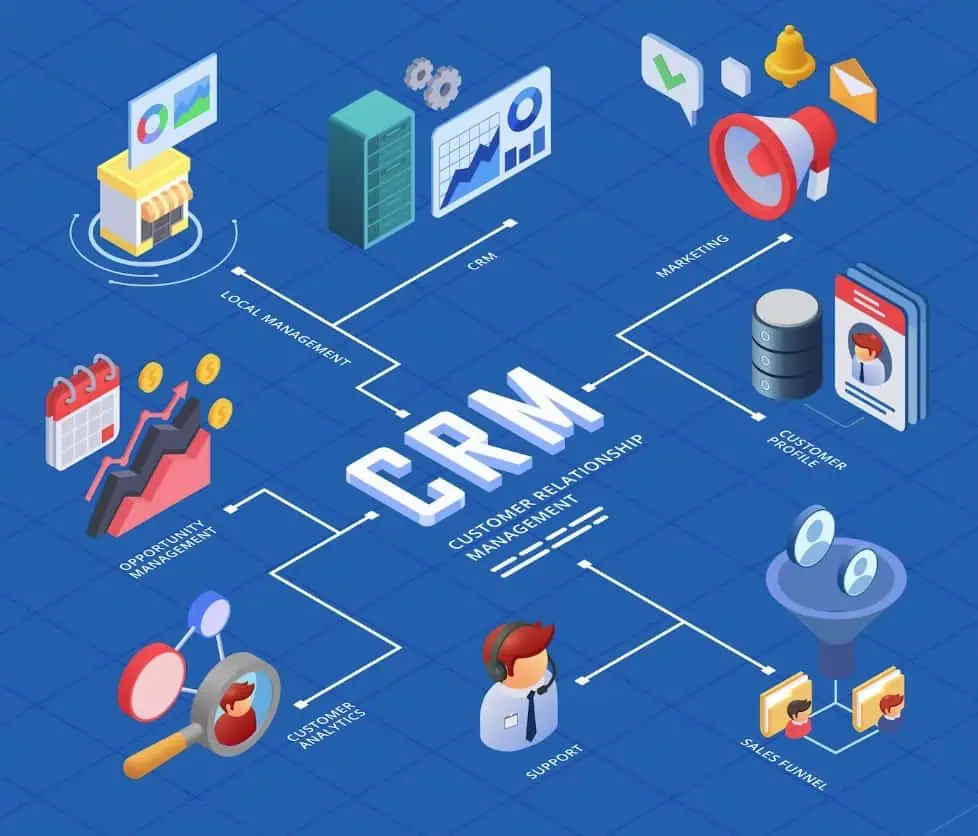How to Choose the Best Manufacturing ERP Software?
Enterprise resource planning (ERP) software for manufacturing helps companies streamline operations and remain competitive on the market despite ever-increasing customer expectations and operational complexity. However, not all ERP systems are equally suitable for companies that specialize in manufacturing. In this article, you will find the criteria that should be considered to make the right choice of an ERP system for the manufacturing industry.
Industry-Specific Functionality
ERP software for manufacturing comes in various forms. There are systems dedicated exclusively to manufacturing companies, while there are also more universal solutions that can be used in companies of different specializations. You can also come across flexible solutions, such as Microsoft Dynamics 365, that allow their users to add and remove a variety of ERP and CRM applications to create a comprehensive suite that covers a wide range of processes in an organization.
Note that some key functionality, for example, accounting, is present in many ERP systems, but there are a number of specific functions that are not always available in the same software product.

To get the most out of an ERP system, your company may need features such as demand forecasting, production planning, scheduling, inventory management, supply chain management, production floor control, and traceability.
Find more about how to choose the best manufacturing ERP software at: https://xplusglobal.com/blog/how-to-choose-the-best-erp-for-your-manufacturing-company/
Flexibility and Scalability
The needs of your business can change significantly over time. The company can evolve and grow, or it can also scale down. It is much easier to use a scalable and flexible ERP system than switch to another product to meet the new needs of your business.
One of the best examples of such ERP systems is Microsoft Dynamics 365 Finance and Supply Chain Management (FSCM). This ERP system consists of two applications for financial management and supply chain management, respectively, which can be implemented together or separately. In addition, users can add a variety of other applications to the suite, which can also be enriched with CRM functionality.
What makes this software so flexible is the fact that you can start with a single application and gradually build up an entire suite. You can also opt for an ultimate ERP and CRM solution and remove all the applications if you consider them redundant.
Microsoft Dynamics 365 FSCM is also a scalable solution that offers businesses the same flexibility in terms of the number of users, which can be changed practically on the go.
Moreover, the number of applications, users, and their level of access to the software features determines the final licensing cost of this ERP system. Such a licensing plan offers a great opportunity for companies to reduce their costs when they downsize.
User Experience
Although the functionality of an ERP system is of paramount importance, the user experience should not be ignored. It is not a good approach to leave employees with overcomplicated and poorly designed software. User experience can have a significant impact on system adoption and employees’ productivity. Even if staff gets used to various counterintuitive, inconvenient features, it will still take them more time to complete tasks with such software, and they may also make more mistakes.
A shorter learning curve leads to faster adoption and an increase in work efficiency, which in turn speeds up ROI.

To ensure your employees have fewer issues with the adoption of a new tool, review the training and support offered by vendors. Also, consider working with an official ERP software implementation partner. For instance, XPLUS can help users successfully implement Microsoft Dynamics 365 FSCM.
Software Architecture
Cloud software has recently become a new market standard, and ERP systems are no exception. Cloud architecture brings additional benefits to ERP software users, such as better scalability, lower implementation and maintenance costs, and accessibility from any location, which is particularly useful for manufacturing companies. In addition, cloud software is much easier to integrate with other applications.
Although these advantages seem very lucrative, it is necessary to assess the possible downsides of cloud ERP systems before making your final decision.
Cloud ERP systems are highly dependent on the Internet connectivity, and in some regions, it is practically impossible to maintain a stable connection. If a company chooses a cloud system in such a location, operations may be frequently interrupted, affecting productivity.
Another potential problem is data security concerns, which is especially true for industries that must comply with strict regulations.
Additionally, cloud software offers its users limited control over updates and upgrades and gives fewer customization options.
Finally, it is also necessary to make a thorough cost assessment, as cloud software is not always cheaper than on-premises solutions, especially in the long run.
Note that some ERP systems, such as Microsoft Dynamics 365 FSCM, can be deployed on-premises and in the cloud form, which allows companies with different needs to benefit from their features.
Consider the Unique Requirements of Your Company
In this article, you have learned about some crucial criteria that help evaluate the quality of an ERP system for the manufacturing industry. Yet, it is essential to consider the specific needs of your company. There is no ideal solution for all enterprises and it is important to ensure the software you choose is indeed the optimal solution for your business.
Determine the goals you want to achieve with the implementation of an ERP system and assess the capabilities of the software product you select to achieve those goals. Pay particular attention to the capabilities the ERP suite offers to address existing weaknesses and support areas that need improvement.
At the same time, your company may not need a particularly comprehensive and advanced ERP system right now. In this case, your best choice will be to choose a scalable software product.